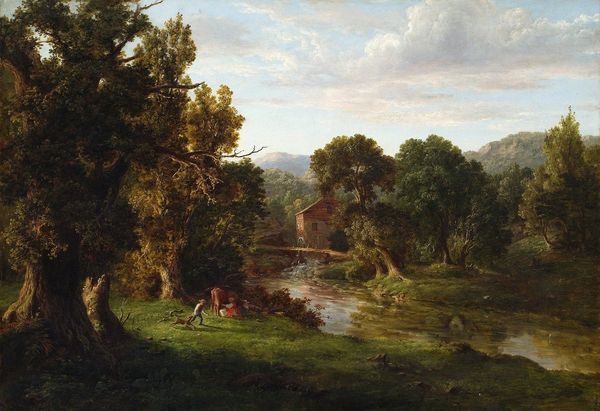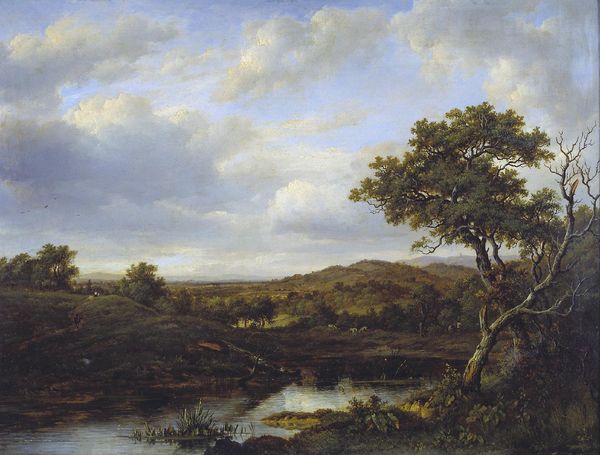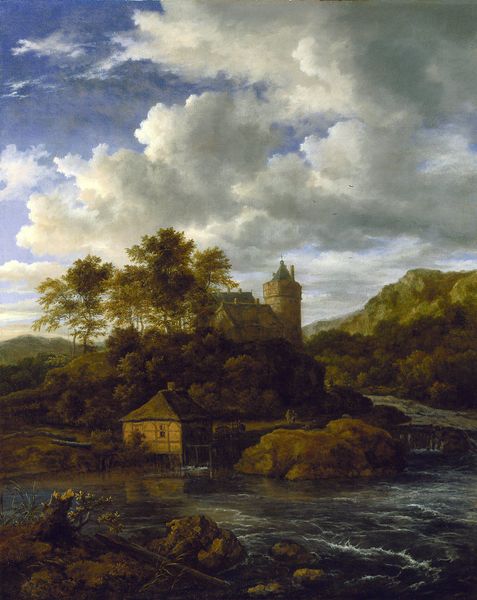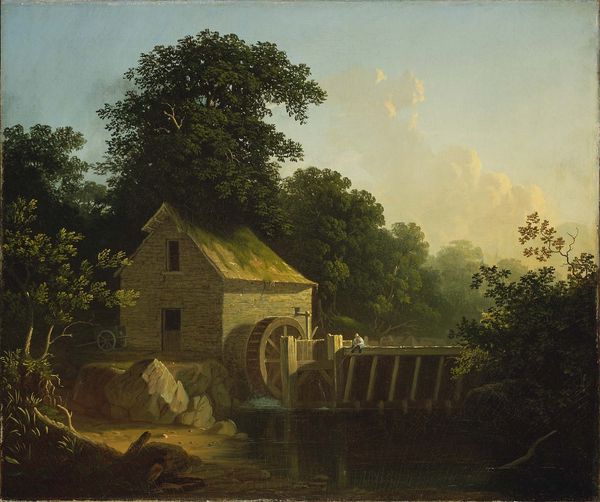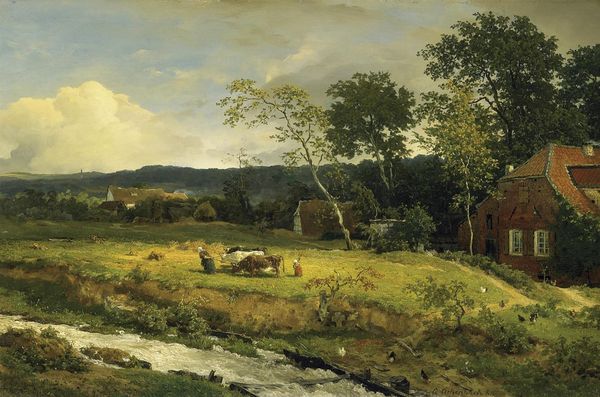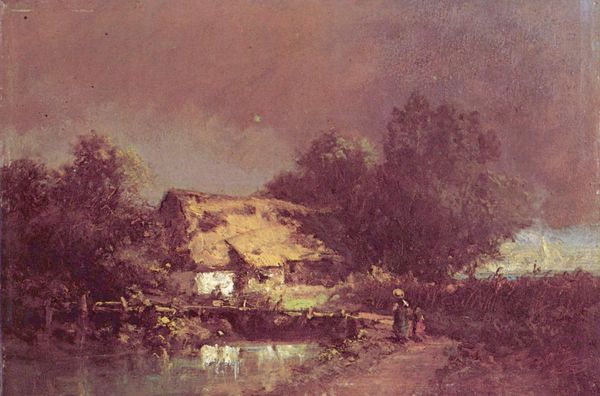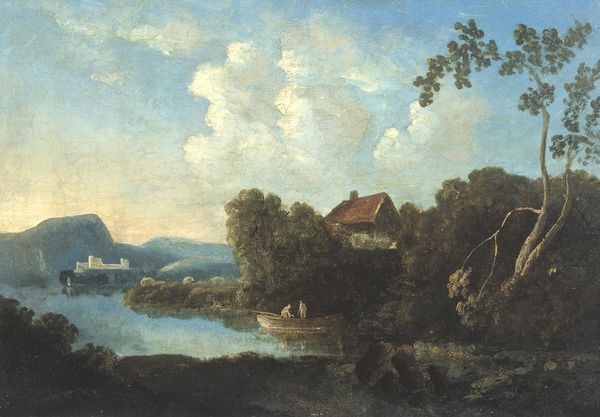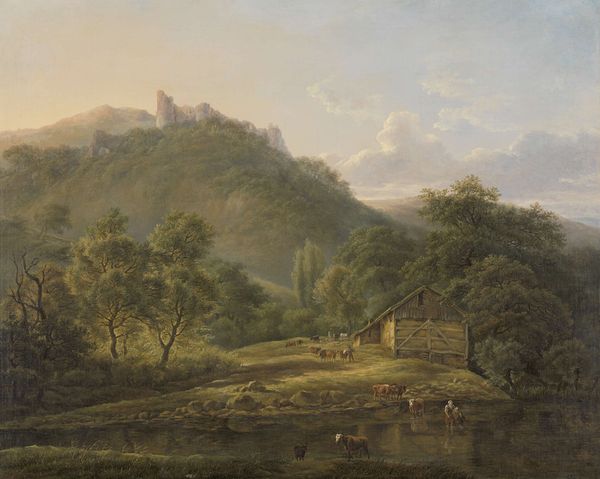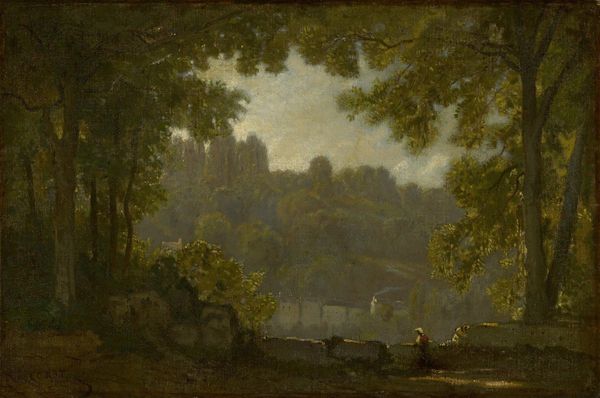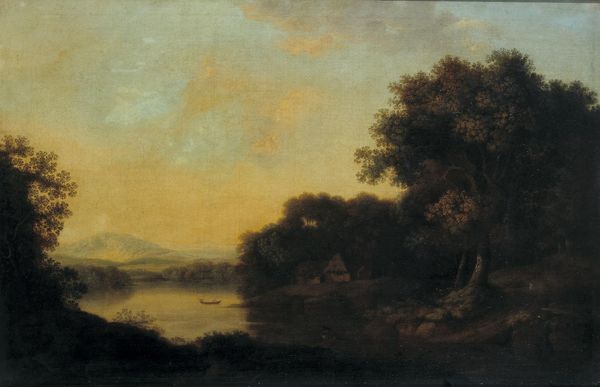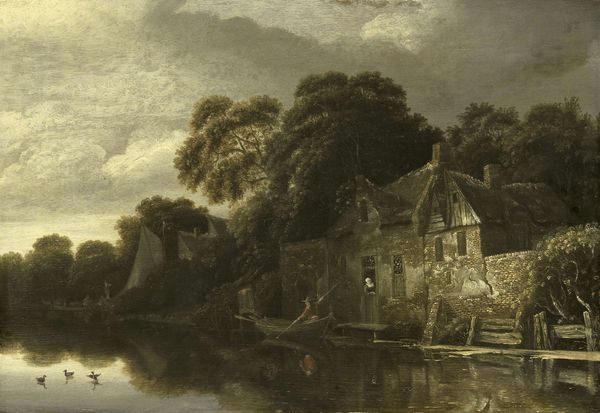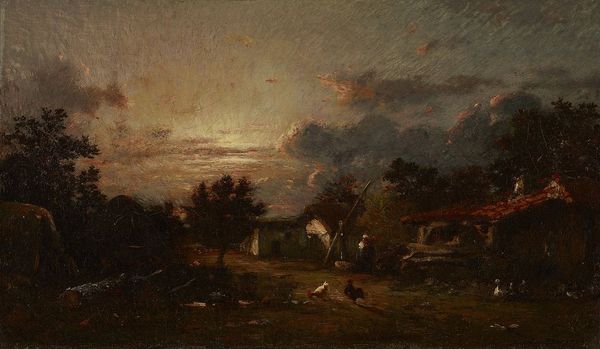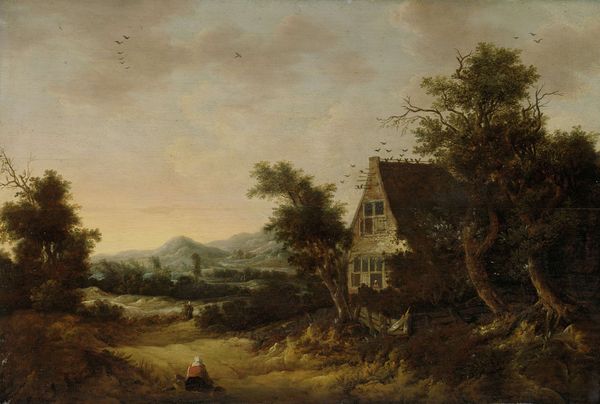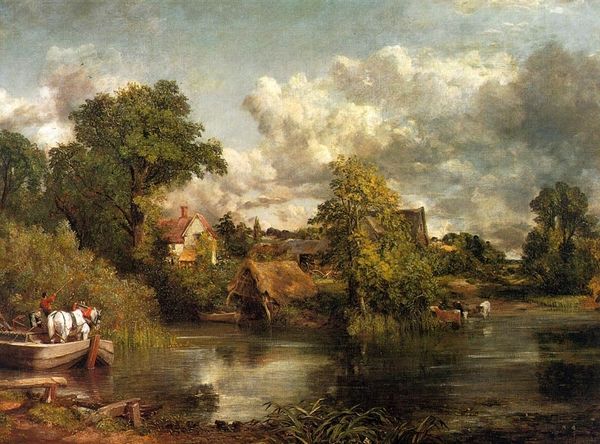
Dimensions: support: 997 x 1248 mm
Copyright: CC-BY-NC-ND 4.0 DEED, Photo: Tate
Editor: This is George Barret Senior's "River Scene with Watermill, Figures and Cows," currently housed at the Tate. It has a very tranquil and romantic feel to it. What social narratives can we find in this image? Curator: The pastoral scenes idealized in works like this obscure the realities of rural labor and land ownership during the period. Consider the figures crossing the bridge, seemingly at peace. Whose labor enables this idealized leisure? Editor: So, it's not just a pretty picture; it's masking a more complex social reality? Curator: Precisely. The painting invites us to consider who is included and excluded from this vision of harmony, and what power dynamics are at play. Editor: That's a powerful way to look at it. I’ll never see landscapes the same way again. Curator: Indeed. Art serves as a reflection of society, inviting critical analysis and promoting awareness.
Comments
tate 10 months ago
⋮
http://www.tate.org.uk/art/artworks/barret-river-scene-with-watermill-figures-and-cows-t01881
Join the conversation
Join millions of artists and users on Artera today and experience the ultimate creative platform.
tate 10 months ago
⋮
This painting shows an idealised landscape. The Irish painter, George Barret, made up his views from stock motifs such as cottages, watermills, peasants and cattle.They may seem artificial now but in their time these landscapes were appreciated for their naturalness. Contemporary art theory said that painting should represent a higher form of reality in which the ugliness and disorder of the real world were suppressed, in favour of aesthetic harmony. Barret’s pictures embodied this idea and he became one of the most successful landscape artists working in London in the 1760s and 1770s. Gallery label, May 2007
